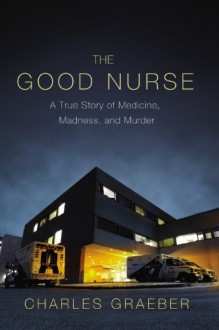
While the first third or so of the Charlie Cullen story read like a typical true crime retrospective, as the story unravelled, I found this book to be a surprisingly interesting case study of both individual and institutional morality. Cullen's actions defy any "normal" expectations for this type of a killer. However, the hospital's actions (or lack thereof) are consistent with what has been seen before:
They called these killers Angels of Death. All of those cases shared a simple but disturbing pattern; each time, the doctors treated the rash of crashing patients like a disease to be studied, while the administration and the lawyers treated them as a potential lawsuit. The institution dragged its feet before calling in the cops. And while they dragged, people died.
The detectives, and the CI nurse make for great characters and give the reader a sense of how mind-boggling it is to try to make sense of someone like Cullen in order to make their case. There's not too much I can say without giving the story away, but if you're looking for a fast, interesting read it might be worth your while. The legal procedural elements at the hospital "paired nicely" with [b:Five Days at Memorial: Life and Death in a Storm-Ravaged Hospital|17704902|Five Days at Memorial Life and Death in a Storm-Ravaged Hospital|Sheri Fink|https://d202m5krfqbpi5.cloudfront.net/books/1380120962s/17704902.jpg|24752264]. Likewise, it's an interesting portrait of human "conscience" - finding some intriguing overlap with [b:Into That Darkness: An Examination of Conscience|562714|Into That Darkness An Examination of Conscience|Gitta Sereny|https://d202m5krfqbpi5.cloudfront.net/books/1320530779s/562714.jpg|2605252].


 Log in with Facebook
Log in with Facebook 





